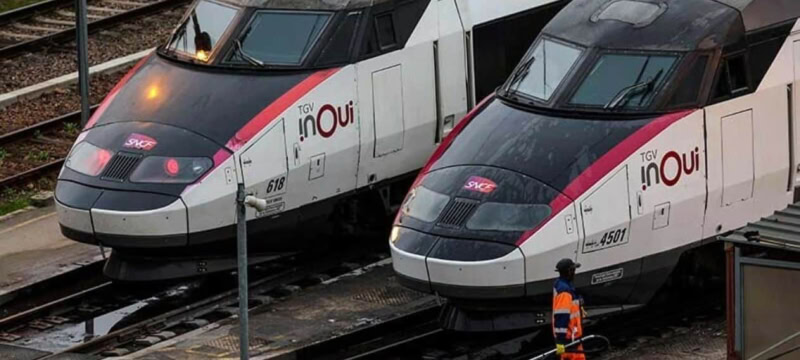For France’s Interior Minister Gérald Darmanin, tasked with ensuring security for the Paris Olympics, the sabotage of the high-speed rail network is a significant setback. While Darmanin has promised swift arrests, he has not yet identified potential suspects.
Sports Minister Amélie Oudéa-Castéra assured that the perpetrators would not disrupt the event, despite the attack causing chaos for travelers and highlighting vulnerabilities in France’s advanced rail system just hours before the opening ceremony.
Read more: Thousands Evacuate Canada Jasper National Park As Wildfire Reaches Town
Caretaker Prime Minister Gabriel Attal advised caution in drawing conclusions but noted that the attackers demonstrated a clear understanding of how to inflict maximum damage. Initial suspicions are directed at ultra-left radicals, based on security briefings, though no group has claimed responsibility. The methods used in the attack, targeting critical optical fibers and cables, resemble those of previous extreme-left operations.
Last September, an anonymous claim on a left-wing website condemned “capitalist infrastructure” after cable ducts were set alight near Hamburg in Germany. While this points to leftist motives, the extensive coordination across four regions in France for the recent attacks suggests a broader effort beyond the extreme left.
The attacks on the rail lines out of Paris on July 26 targeted major TGV routes, causing significant disruptions. The High-Speed Rail line to the south-east was nearly halted, but an alert engineering team intercepted saboteurs in “vans.” Regional and national forces, including the national police, gendarmerie, and anti-terrorist SDAT, are investigating, hoping to gather evidence from sabotaged devices left near Vergigny.
Previous attacks on French railways, including one in January 2023 and another in May 2024, show some similarities to the recent sabotage. The May incident occurred on the day the Olympic flame arrived in Marseille, using makeshift petrol bombs. Despite the attacks being botched, France’s security services are exploring possible connections.

Earlier this year, the French Interior Minister had warned of a significant external threat, possibly similar to the jihadist attack on Crocus City Hall in Moscow. France has experienced a series of deadly jihadist attacks recently, but the recent rail network sabotage did not involve bloodshed, despite causing significant disruption for travelers.
Suspicion also falls on Russia, which is currently engaged in a full-scale invasion of Ukraine and has conducted a high-profile disinformation campaign against France. Pro-Kremlin social media accounts have targeted the Paris Games, criticizing the Seine’s water quality and attacking President Macron and Paris Mayor Hidalgo, whom Moscow despises for their support of Ukraine.
Although Russia denies any interference, French officials suspect Moscow’s involvement in destabilizing activities in Paris, such as vandalism and threats. Recently, a Russian national was arrested in Paris for allegedly planning acts of “destabilization and spying,” though Russia claims ignorance of the arrest.
The sabotage of France’s rail network, described by Caretaker Prime Minister Gabriel Attal as targeting key “nerve centers,” was highly coordinated and aimed at causing maximum disruption. The attacks targeted crucial intersections on high-speed lines, disrupting travel to major cities.
French security expert Romain de Calbiac suggested that the attackers might have had insider knowledge or received information from foreign entities. SNCF, the state-owned rail company, had been on high alert for such sabotage attempts, especially before the Olympics. Despite detecting numerous threats, only one significant attack was thwarted, and the recent incidents have overshadowed the intended celebrations.









